Obstructive Sleep Apnoea (OSA)
In its simplest terms, obstructive sleep apnoea or OSA is a medical condition which leads to an obstruction to breathing whilst asleep. Apnoea is the technical term for ‘absence of breathing’, and in the case of OSA, these brief absences of breath are caused by an obstruction, usually by tissues in the throat, whilst the sufferer is asleep.
In this guide to OSA:
- What is OSA?
- Diabetes and OSA
- Do I have OSA and how can I recognise it?
- Dangers of leaving OSA untreated
- How can I be tested?
What is Obstructive Sleep Apnoea (OSA)?
Each time an apnoea or obstruction to the breathing occurs; the brain detects the falling oxygen levels in the blood and sends out various messages to the body. For example:
- It will instruct the heart to beat faster to deliver more of the remaining oxygen around the body
- Tell the chest muscles and diaphragm to work harder to clear the obstruction and take in a breath
- Send signals to produce and release more stress hormones.
All of these bodily responses disturb sleep; sometimes just enough to get the sufferer to breathe and they are not aware of this and other times the person will fully wake up with a gasp or choke. Either way, any person with sleep apnoea will be having interrupted sleep, with little deep restorative sleep
As you can imagine, if all of this is happening whilst the sufferer should be soundly resting, it is not surprising that those who have OSA often drag themselves out of bed in the morning feeling unrefreshed and excessively tired or sleepy during the rest of the day, often falling asleep whenever they are in a quiet or unstimulating place, such as watching TV, reading, a boring meeting or even whilst driving long distances.
Diabetes and OSA
There is growing evidence that those with diabetes are much more likely to suffer from obstructive sleep apnoea (OSA).
In 2006, a group of UK doctors from the Oxford Centre for Respiratory Medicine carried out a study to establish the prevalence of OSA in men with type 2 diabetes. From the results gathered, they were able to estimate that 23% of men with type 2 diabetes also have OSA when compared to only 1-5% in the general population. They conclude that OSA is therefore highly prevalent, meaning much more common, in men with Type 2 diabetes and that most are undiagnosed ¹ .
So, if you currently have diabetes you have a 1 in 4 chance of also suffering from sleep apnoea.
This chance is greatly increased if you are male, overweight, habitually snore, have restless sleep and are excessively tired in the day
Why is there a connection between OSA and diabetes?
A study conducted in France found that even men with mild sleep apnoea were more likely to have problems maintaining blood glucose levels within the normal levels and or suffer from diabetes, than those without OSA ² . The reasons for this are not entirely clear but it is thought that the stress on the body caused by OSA, namely reduced oxygen levels throughout the night and constantly disturbed sleep, may lead to a number of chemical changes in the body.
These changes are thought to create a situation where insulin resistance (the condition that often leads to diabetes if not corrected) leads to glucose intolerance and type 2 diabetes 3, 4.
Do I have OSA and how can I recognise it?
It is estimated that over 50% of people with diabetes have some form of sleep disordered breathing 5. So if you suffer from diabetes, there is a 1 in 2 chance your breathing during sleep is being affected in some way. Obstructive sleep apnoea (OSA) is the most common form of sleep disordered breathing, affecting around 25% of those with diabetes 6.
You are more at risk of suffering from OSA if you:
- are male (twice as likely than in females)
- are over 40 years (but younger people are sometimes still effected)
- are overweight
- have diabetes
- have high blood pressure
- have a large collar size (typically over 17 inch)
- have a small lower jaw
- smoke
- drink large amounts of alcohol
- are on sleeping medication (sedatives) or certain anti-depressant mediation.
Signs & symptoms you may be experiencing if you have OSA include:
- Heavy snoring*
- Excessive daytime sleepiness*
- Gasping or choking during the night *
- Witnessed pauses in breathing whilst asleep (by your bed partner)*
- General fatigue and lethargy
- Restless sleep
- Irritability
- Morning headaches
- Anxiety or depression
- Poor memory
- Brain fog or difficulty concentrating
- Frequent trips to the bathroom during the night
- Decreased sex drive or sexual dysfunction
- High blood pressure (especially if resistant to medication)
- Difficulty controlling blood glucose levels
The International Diabetes Federation report on Type 2 Diabetes and Sleep Apnoea 7 recommended that all diabetics who experience any of the first four classical symptoms above* be tested for OSA.
Dangers of leaving OSA untreated
If you suspect you may have sleep apnoea, it is very important that you have this investigated, as sleep apnoea is known to have a serious impact on the health of those affected. These dangers include:
Heart Disease & Stroke
It is known that those who have sleep apnoea and it is either undiagnosed or not effectively treated, have an increased risk of suffering from a heart attack or stroke.
If you have diabetes your risk of developing heart disease or having a stroke is unfortunately already higher than in those without diabetes. Effectively treating sleep apnoea can be a significant measure to help prevent the development of heart disease and stroke. So if you are diabetic, you need to keep any additional factors that may contribute to the progression of these serious conditions to a minimum.
Sleep apnoea can be treated in those with diabetes and helps reduce the risk of heart disease.
Injury or Death in Road Traffic Accidents
It is estimated that as many people die on UK roads in accidents caused by sleepiness as those involving drink driving. It is worth re-reading that last sentence – it’s alarming! Those suffering from sleep apnoea are at risk of momentarily falling asleep at the wheel of their car, especially on long motorway drives, due to lack of good quality sleep.
Those with untreated sleep apnoea are not only at risk themselves, but also a danger to all road users.
Quality of Life Significantly Affected
Perhaps not as serious as heart disease or traffic accidents but still a significant issue, is sleep apnoea sufferers who are either unaware of it or just not having it effectively treated. In which case, their everyday lives will often be negatively impacted. Below are just some of these issues:
- They often sleep in separate rooms from their partners due to their snoring. This causes pressures that can at worst lead to the breakdown of the relationship.
- Rates of depression are higher in those with sleep apnoea, again putting strains on relationships.
- They avoid staying over or holidays with friends or family due to embarrassment caused by their snoring.
- Their work performance and social activities are reduced due to constant tiredness due to lack of sleep.
- If weight is an issue, efforts to shift that weight can be hampered by the tiredness which affects the motivation to exercise and eat a healthy diet.
Many people who have suffered for years with sleep apnoea report renewed energy and enthusiasm for life once it is identified and successfully treated.
How can I be tested?
If this suggests there is a possibility you have sleep apnoea, you then have two options:
1. Testing through the NHS
You will need to visit your GP and discuss your suspicions about sleep apnoea. Please be aware that GP’s have differing levels of knowledge of sleep medicine as it is a specialist area but if they agree it may be an issue for you, they will refer you to a sleep or respiratory clinic for assessment. Unfortunately, the waiting list to be seen by a consultant at one of these clinics can be long depending on the area you live in, which can vary greatly in different areas of the country. Once seen, you may be offered an in-home test straight away or put on another waiting list for the testing equipment to be available.
2. Testing for OSA Privately with Intus Healthcare
Intus Healthcare has been helping sleep apnoea patients for a number of years and have knowledgeable staff and qualified health professionals who can advise you. They provide many of the same in-home testing options that you may be offered through the NHS, with experienced sleep technicians and doctors interpreting the results. The turn around time for test results is usually 7-10 days.
2. Meslier N et al. Impaired glucose-insulin metabolism in males with obstructive sleep apnoea. Eur Respir 2003; J 22(1): 156-160.
3. The International Diabetes Federation Consensus Statement on Sleep Apnoea and Type 2 Diabetes (2008)
4. Tasali E, Mokhlesi B & Van Cauter E. Obstructive Sleep Apnoea and Type 2 Diabetes. Chest 2008; 133; 496-506. 5. Resnick HE et al. Diabetes and sleep disturbances: findings from the Sleep Heart Health Study. Diabetes Care 26(3): 702-709, 2003
6. West SD, Nicoll DJ, Stradling JR. Prevalence of obstructive sleep apnoea in men with Type 2 diabetes. Thorax 2006; 61:945-950.
7. The International Diabetes Federation Consensus Statement on Sleep Apnoea and Type 2 Diabetes (2008)







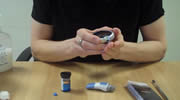

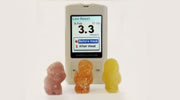

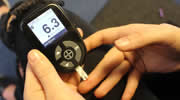



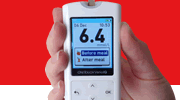
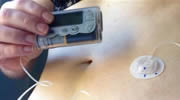

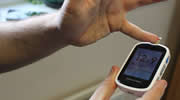




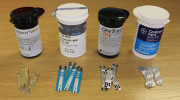
 NHS type 2 diabetes prevention drive receives funding expansion
NHS type 2 diabetes prevention drive receives funding expansion Smart capsules being developed to deliver insulin automatically
Smart capsules being developed to deliver insulin automatically Heavy drinking heart health warning has implications for people with diabetes
Heavy drinking heart health warning has implications for people with diabetes